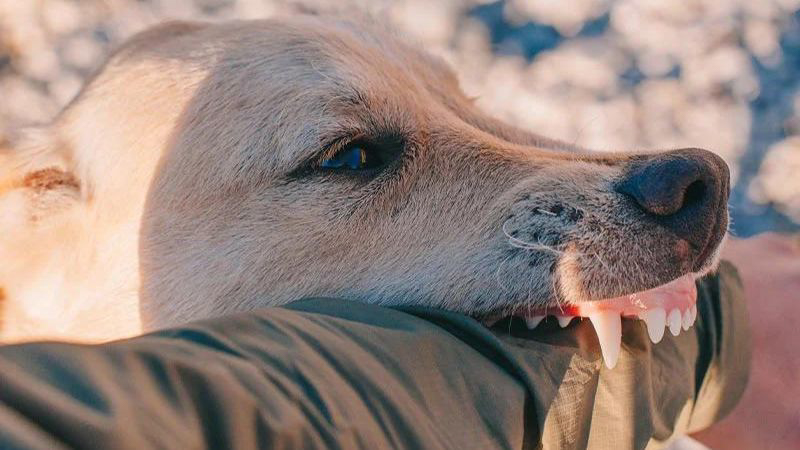Guide to Compensation for Permanent Scarring From Dog Bites



Key Takeaways:
- Over 800,000 people require medical attention for dog bites annually, with injuries ranging from lacerations and puncture wounds to disfiguring scars and eye injuries.
- In South Carolina, a dog owner is liable if the bite occurs in a public place or while the victim is lawfully in a private place, provided the victim did not provoke the dog.
- There is a three-year statute of limitations for filing a dog bite lawsuit in South Carolina.
- Unlike many states, South Carolina does not adhere to the “one-bite rule.” Dog owners are held accountable for bites even if their dog has no prior history of biting.
- Victims of dog bites should consider legal action if insurance claims are insufficient. This includes suing for both economic and non-economic damages.
More than 800,000 people receive medical attention for dog bites, according to the CDC. A particularly nasty dog bite can leave lasting damage, especially if the victim is a small child. Some of the most common injuries from dog bites include lacerations, puncture wounds, disfiguring scars, and even eye injuries. HawkLaw, P.A. is here to assist you if you or your child suffers a dog bite at the hands of a negligent owner. Learn how you can get compensated for your injuries by calling 888.HAWK.LAW and scheduling a free case evaluation.*
Understanding South Carolina Dog Bite Laws
South Carolina, unlike most other states, does not follow the one-bite rule regarding attacks by dogs. If a dog attacks and bites you or your child but has never bitten anyone else before, the owner is still held accountable.
More specifically, the state laws clearly outline the circumstances in which an owner is liable for a dog bite attack (SC Code Section 47-3-110). These circumstances include when the dog bite victim is in public spaces or in a private space for lawful reasons and in no way provoked the dog to attack and bite.
When the dog bite fits within these parameters, the owner is liable. In addition to being liable for damages, the dog owner, on a first offense, can potentially face a fine of $5,000 and serve a three-year prison sentence.
When Should I Sue After a Dog Bite?
Suffering the injuries of a dog bite and the aftermath can be stressful and overwhelming. Depending on the severity of your injury and the resulting expenses, you may want to consider suing the dog owner.
Start by speaking with a personal injury attorney to determine whether you should pursue an insurance claim for both your medical treatments and any accompanying psychological trauma or if your dog bite case warrants a lawsuit.
If the homeowner’s or personal insurance policies do not cover all your expenses, or the insurers continue to offer low settlement offers, suing may be your best option.
Dog bite attorneys will evaluate your personal injury case fully, compile evidence, and calculate both economic and non-economic damages relevant to your particular injury and circumstances.
What Kinds of Damages Can I Seek After a Dog Bite?
There are two different kinds of damages you can seek after a dog bite – economic and non-economic.
Economic damages are measurable in dollar amounts and include your medical expenses, lost wages, and more. Your dog bite lawyer can also seek specific non-economic damages, like mental anguish, disfigurement, and pain and suffering. If a loved one suffers a fatality due to a dog bite injury, you may want to consider filing a wrongful death lawsuit to recover damages.
In addition, you may choose to pursue criminal charges against the dog owner under the South Carolina Dangerous Animal Statute. Such charges could result in a fine of $5,000 and a potential prison sentence.
How Long Do I Have in South Carolina to File a Dog Bite Lawsuit?
In South Carolina, a dog bite case has a statute of limitations of three years. That means you have three years from the date of the sustained injury to pursue a lawsuit.
Keeping track of how much time elapses while dealing with insurance companies and avoiding missing the statute of limitations deadline is crucial. Missing the deadline means you risk forfeiting your rights to file a lawsuit.
For this reason, consider hiring a dog bite lawyer to help negotiate with the insurance companies and also keep track of the timeline in case you need to sue.
What Happens if a Dog Bites Your Face?
Dog bites can happen to any part of the body. When they occur on the face, there is the potential for damaging the nerves, causing numbness, tingling, a loss of sensation, and pain, and the victim may need medical treatment or surgery.
Dog bites can also cause significant scar formation on the face. Some facial scars may even require plastic surgery to reduce their appearance. Yet, any procedures to reduce the appearance of scarring, unfortunately, cannot remove them altogether. A residual scar may remain, and this can result in psychological effects on dog bite victims.
The psychological effects of permanent scarring can be many, including anxiety, depression, and low self-esteem. Children will especially be fearful of what others will think and dread the thought of being teased. For adults, the scarring may psychologically interfere with personal and professional relationships.
While bodily injuries can heal, scarring that remains serves to remind the victim of the trauma of the dog attack itself. For these reasons, seeking legal advice from experienced personal injury lawyers will be beneficial for obtaining not only compensation for your medical expenses but also for pursuing psychological and mental damages resulting from the dog bite.
How Do You Treat Dog Bite Scars?
Immediately following a dog bite, you should seek medical attention to assess and treat your injuries. By seeking such treatment as early on as possible, you can potentially minimize the amount of scarring and disfigurement.
Dog bites can quickly become infected and will take longer to heal, leaving behind more noticeable scarring. Your medical team can clean, disinfect, and treat the wound and provide you with a prescription for antibiotics to help prevent further infection. This quick response to the wound can limit the amount of scarring and disfigurement.
Other treatments for scars may include laser treatments, ointments, and surgery.
Laser Treatments
For bites that are large or deep, laser treatments may be able to help. These types of treatments can reach the deeper layers of the skin. A particular type of treatment is called dermabrasion which utilizes laser resurfacing to limit the appearance of rough or raised keloid or hypertrophic scars and create smoother-looking skin.
Ointments
Topical ointments, such as Neosporin, can often help reduce or minimize milder scarring. The goal of this scar treatment option is to keep the area hydrated, which may lessen the chances of any deep scarring over time. Silicone products are also an option to help minimize or fade scarring.
Surgery
Plastic surgeons can help make scars less visible. One approach is through scar revision surgery, where an incision is made for the removal of the scar tissue and surrounding skin at the injury site. Other cosmetic surgery and reconstructive surgery options may be available as well.
The reality is that dog bites require a healing process that takes time. Scar formation usually occurs within a year’s time and may result in frustration and impatience in returning to how you were before the injury. Every time you see the scar, it can bring back memories of the attack and trauma and affect your mental well-being.
Will Insurance Cover Dog Bites?
While being treated for a dog bite injury, you may be wondering if insurance will cover the involved costs, including those for plastic surgery. Depending on the severity and location of the injury, medical bills can be quite high, and you will need to pursue all your options when it comes to paying for these and other damages.
If you are injured at a friend’s or neighbor’s house, ask them if they have homeowner’s insurance. Homeowner’s insurance will often cover injuries on the policyholder’s property, including dog bites. However, be aware that some policies limit coverage to a first-time injury caused by an animal and exclude any others that follow. If the dog has attacked before, you may not have recourse through the policyholder’s insurance.
Also, insurance providers may deny coverage for certain dog breeds, such as pit bulls, rottweilers, or mastiffs. This denial is because such breeds are considered to be potentially dangerous.
Much will depend on the insurance company as to whether coverage is provided or not for dog bites and in what capacity.
Attacked by a Dog? Fight Back Today
Sustaining dog bite injuries can affect you now and far into the future, with scarring, disfigurement, and ongoing psychological issues. When seeking compensation from insurance companies, many dog owners will try to argue that you provoked their dog into attacking you. To protect your right to compensation, call and schedule a free consultation* with an experienced South Carolina dog bite lawyer at HawkLaw, or complete our convenient online contact form. Our law firm proudly serves all of South Carolina.
Frequent Answered Questions
Coverage depends on the specific insurance policy. Homeowner’s insurance often covers dog bites, but some policies have limitations based on the dog’s history or breed.
Treatments include immediate medical attention, laser treatments, ointments, and possibly surgery, such as scar revision surgery.
In South Carolina, you have three years from the date of the injury to file a dog bite lawsuit.
You can seek economic damages (like medical expenses and lost wages) and non-economic damages (such as mental anguish, disfigurement, and pain and suffering). In fatal cases, a wrongful death lawsuit may be filed.
Consider suing if insurance claims do not cover all your expenses, or if insurers offer low settlements. Consulting with a personal injury attorney can help determine the best course of action.
John D. Hawkins
John Hawkins is the Founder and CEO of HawkLaw He has been licensed to practice law in South Carolina since his graduation with honors in 1994 from the University of South Carolina School of Law, where he was on the Law Review and Order of Wig and Robe.
-
$3,000,000*SettlementTrucking Accident
-
$1,005,000*SettlementCar Accident
-
$575,000*SettlementPersonal Injury
"*" indicates required fields













